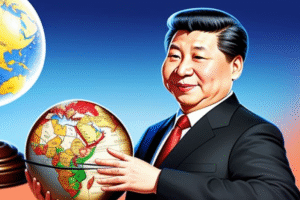$KRW $SPY #KimchiBonds #SouthKorea #EconomicPolicy #Investment #GlobalFinance #Currency #DebtInstruments #FinancialNews #MarketTrends #EconomicGrowth
Why Did South Korea Lift Its 14-Year Kimchi Bonds Ban Now? Discover the Strategic Move Behind It!
In the latest south news, South Korea has made a significant shift in its financial strategy by lifting a 14-year ban on the issuance of so-called Kimchi Bonds. This move, aimed at revitalizing the national economy and stabilizing the Korean won, marks a pivotal moment in the nation’s economic landscape.
A Deep Dive into the Reinstatement of Kimchi Bonds
Kimchi Bonds, essentially debt securities issued in South Korea but denominated in foreign currencies, provide an avenue for both governmental and corporate entities to access international capital markets. By lifting this ban, South Korea is signaling its readiness to increase foreign investment inflows and diversify its financial tools amidst fluctuating global economic conditions.
The Timing and Implications of This Strategic Decision
The decision to reintroduce Kimchi Bonds comes at a time when South Korea faces multiple economic challenges, including a need for greater foreign exchange liquidity and a more robust framework for managing its external debt. Furthermore, this move aligns with global economic shifts and the increasing interconnectedness of financial markets, offering South Korean entities more flexibility in managing currency risks associated with foreign currency-denominated debt.
Potential Benefits for the South Korean Economy
The reintroduction of Kimchi Bonds is expected to provide several benefits. Firstly, it allows South Korean companies and the government itself to tap into a broader base of investors, potentially leading to better borrowing terms compared to domestic borrowing options. Secondly, it enhances the attractiveness of South Korea as an investment destination, thereby potentially strengthening the Korean won and stabilizing the nation’s financial markets.
Challenges and Considerations
However, the issuance of debt in foreign currencies also comes with its set of challenges, chiefly the risk of currency fluctuations which can increase debt servicing costs if the won depreciates against other currencies. Thus, careful management and strategic issuance of these bonds are crucial to mitigate associated risks.
Looking Ahead: South Korea’s Financial Strategy
As South Korea embraces this renewed financial mechanism, it will be essential to monitor how these bonds impact the overall economic stability and growth trajectories. The global economic landscape continues to evolve, and South Korea’s ability to adapt will be crucial in maintaining its economic resilience and competitiveness.
In conclusion, the lifting of the ban on Kimchi Bonds by South Korea represents a strategic shift intended to fortify its economy by leveraging global capital markets. As investors and policymakers watch this development, the long-term impacts on South Korea’s financial health and economic policies will unfold, potentially setting a precedent for other nations considering similar financial instruments.
For more insights into global financial strategies and economic policies, visit our dedicated section on international financial markets. Additionally, those interested in exploring investment opportunities can check out the latest options on Binance.











Comments are closed.